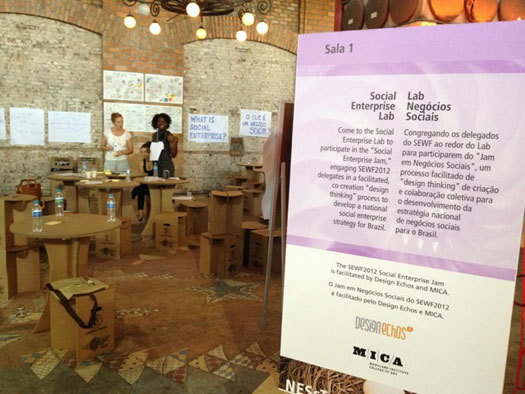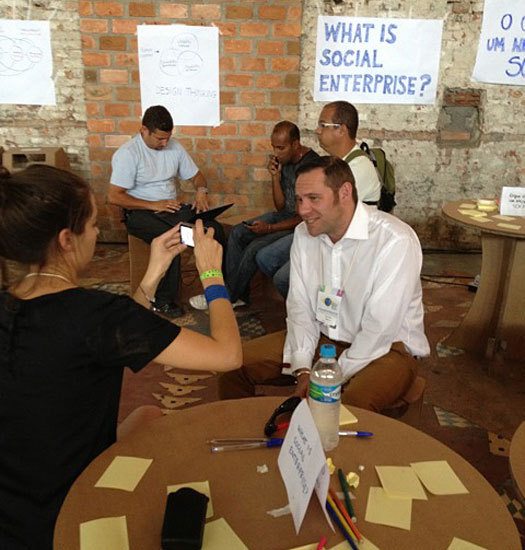
This year, the theme of design at SEWF2012 was given a significant, if not prominent role. In addition the typical panel/lecture format (the one I presented in was titled “Social Design: Applying design thinking and the creative economy to social enterprise challenges”) SEWF 2012 featured a Social Enterprise Lab that was open and accessible to delegates throughout the conference encouraging them to “participate in a facilitated, co-creation, design thinking process to develop a national social enterprise strategy for Brazil.” This was a collaborative and participatory lab, facilitated by myself, Briony Hynson and Becky Slogeris (MICA post-graduate fellows), as well as Liz Ogbu, and Juliana Proserpio and Ricardo Ruffo (Heads of Design Echos, a design firm in Sao Paulo).
The structure of the lab was important because it gave delegates a chance to not just hear about social design and design thinking, but experience the process first hand. And the process is more easily understood if experienced rather than explained. It provided us an opportunity to talk to investors, non-profits, educators, entrepreneurs, NGO's, policy makers, government officials, and volunteers, about collaboration, experimentation, and a human centered approach to problem solving. We were not just extracting thoughts and ideas about social enterprise, but engaging in a dialogue about social design and design thinking and their collective value in social enterprise. In the words of Liz Ogbu, the lab “yielded some great insights about differing perceptions of social entrepreneurship among the diverse stakeholders, and revealed how much more work we need to do make the design and social enterprise dynamic a deep and sustained relationship.”

Obviously, the lab didn't produce a national strategy for social enterprise in Brazil. But it did start the conversation and began to identify a few of the challenges and barriers. For me, the most significant discovery was that the challenges and barriers facing social enterprise were very much in line with the challenges and barriers facing social design. Ultimately, we issued a call to action to the delegation:
• Analyze the fluid ecosystem in which we exist.
• Enable the channels of communication between stakeholders.
• Work collaboratively.
• Cultivate a common language and definition.
Perhaps this call to action can be directed towards social design as well. Perhaps we can move forward collaboratively because we're all navigating this social space together and many perspectives are better than few.
